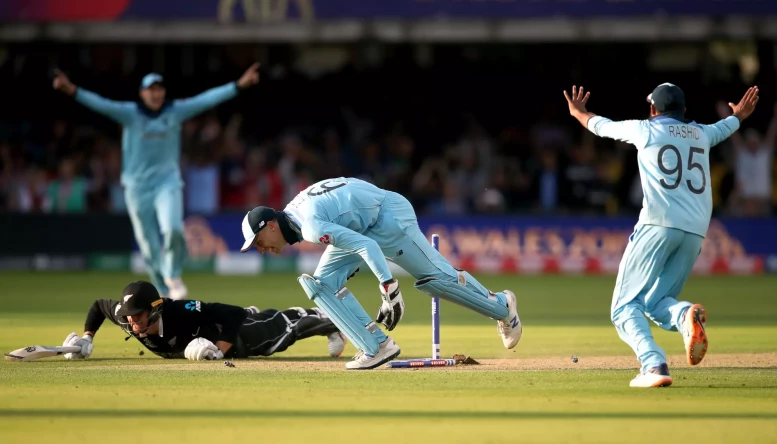Cricket News: Major rule changes by the ICC, why they happened and what they mean for the sport
The ICC has announced that new significant rule changes will be in effect in international cricket from October 1, 2022
 Run out changes in new rules
Run out changes in new rulesThree significant rule changes were recommended and approved by the Cricket Committees of the ICC.
The first involves the rule of a new batsman taking strike
The new law states that any new batsman coming in to bat will take strike first, regardless of the nature of his dismissal.
Previously, if a batsman were out caught and crossed ends with the non-striker, it would be the non-striker who took strike for the next ball.
But under the new rules, even if the two batsmen cross, the new batsman will be the one facing the next ball.
The second significant rule change is around fielders distracting a batter
Any “unfair movements” from the fielding team, including deliberate movements during the bowler’s run-up, can lead to the umpire awarding five penalty runs. In this case, the umpire can also call a dead ball.
Mankading formalised
But perhaps the most significant change comes in the rule regarding running out the non-striker. Popularly known as ‘Mankading’ a batsman, this will now be categorized as a run-out instead of being deemed ‘against the spirit of the game’.
This mode of dismissal has caused plenty of controversy in the past. However, it is enshrined in the rules and will, in theory, discourage the non-striker from leaving his crease too early.
All in all, the new rules aren’t highly revolutionary. But they do address specific sticking points among fans. In a sporting sense, it is always correct for the new batsman to take strike.
Now that the “crossing ends” loophole has been eliminated, it will also make the game easier to understand.
Yet perhaps the most significant change is making the ‘Mankad’ dismissal legitimate. Debates have carried on endlessly about whether or not this is a mode of dismissal that should be allowed.
In fact, despite it being in the rulebook, there remained an expectation among players that a bowler would warn a batter first before carrying out the dismissal.
However, when R Ashwin dismissed Jos Buttler in this fashion in the 2019 IPL, it sparked a heated debate in the cricketing fraternity.
The debate around seeing this as a fair mode of dismissal took off, and even the ICC noted that this was something that needed to be addressed.
Now, with the rules making it clear that this is a run-out and nothing else, it will hopefully also eliminate the controversy around such a manner of being dismissed.
There are, of course, further rule changes in domestic T20 leagues that might be applied internationally soon.
IPL will introduce an ‘impact player’ substitute rule, meaning one player can be subbed under certain circumstances.
Whether or not such rules will be coming to international cricket remains to be seen. But the existing rule changes are welcome – and will improve the game.
Editor's Picks
- 01
Brendon McCullum: England ready to be 'really brave' in team selection for India series
- 02
Diogo Jota inspires Liverpool surge as injuries fail to dampen Premier League lead
- 03
Cameron Norrie ready to go toe-to-toe with the big boys after stellar Australian Open run
- 04
Maxwel Cornet confident of scoring run after opening West Ham account